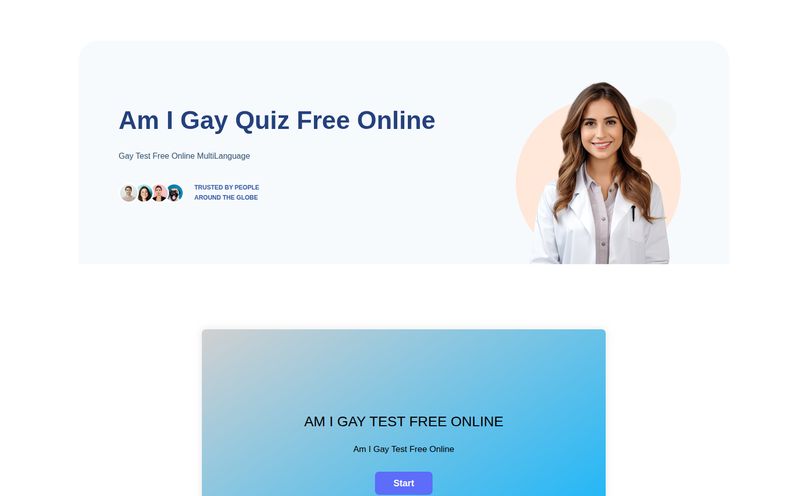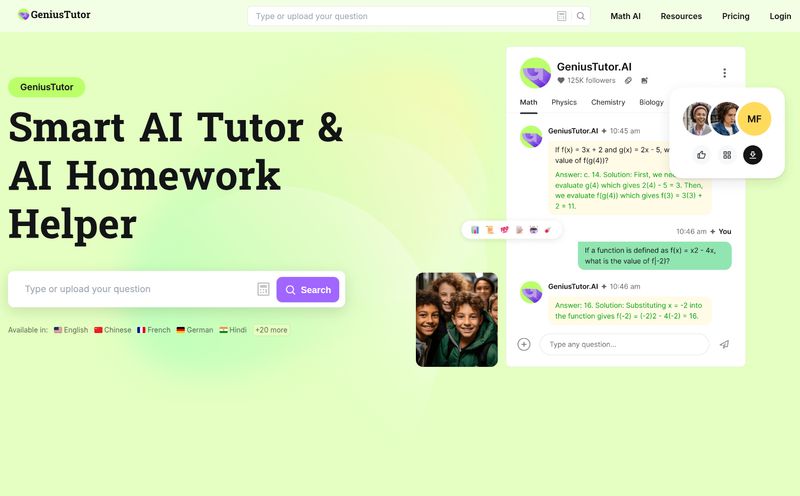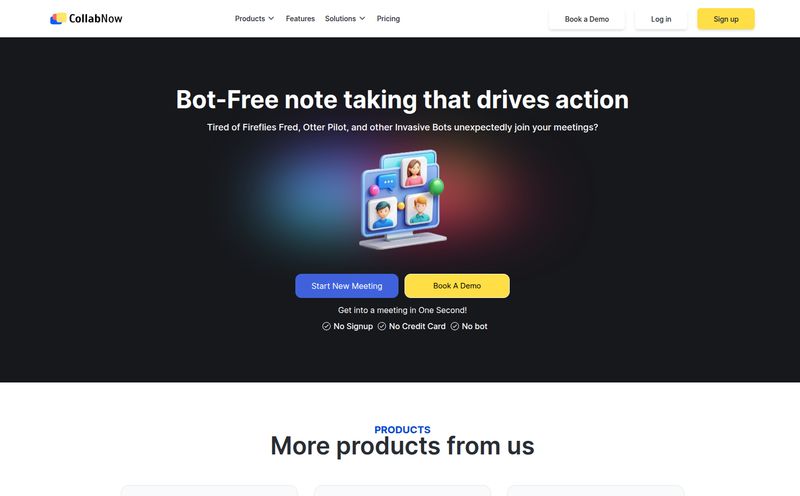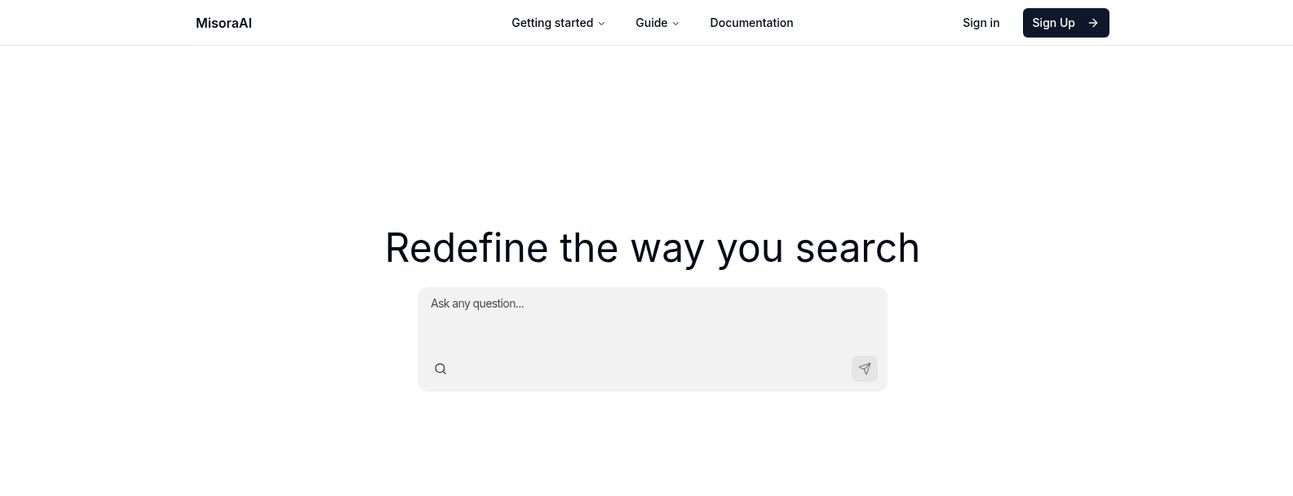If you were to open your phone's photo gallery right now, what would you find? I’ll go first. Mine is a digital graveyard of forgotten memories, half-baked ideas, and about 700 screenshots of things I swore I'd "look at later." We're talking memes from 2019, blurry pictures of a restaurant menu, and that one screenshot of a shipping confirmation for a package that arrived three years ago.
Finding anything is an archeological dig. I'm scrolling, squinting, trying to remember if I took that picture of my friend's Wi-Fi password in July or August. It’s a mess. And as someone who lives and breathes digital organization (or at least tries to), it’s a constant source of low-grade stress.
So when I stumbled upon an app called Phosum, my curiosity was definitely piqued. The promise? Cloud image storage with AI-powered search, summaries, and answers in one tap. It sounds like a magic wand for the digital hoarder. But we've all seen promises like this before. The question is, does it actually work? I decided to find out.
So, What is Phosum Anyway?
Think of Phosum as a super-smart librarian for your visual life. You don't just dump your photos into it; you give them to an assistant that reads, understands, and categorizes them for you. At its core, it’s a cloud storage platform for your images. But the secret sauce is the AI layer on top.
Instead of just searching for "IMG_8021.JPG" or relying on the date, Phosum lets you search for the content of your photos. You can search for "beach sunset," "whiteboard notes from the meeting," or "that recipe for sourdough bread I screenshotted." The AI analyzes the image, understands the context, and pulls it up for you. It’s a completely different way of thinking about your photo library—less of a chaotic shoebox and more of a searchable database.
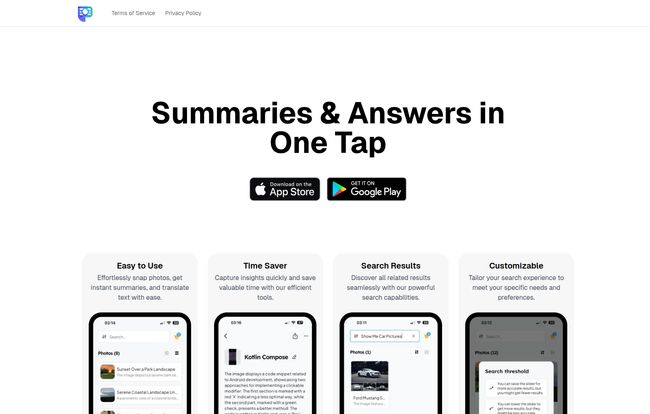
Visit Phosum
A Closer Look at Phosum's Core Features
Okay, so the concept is cool. But what can it actually do? Based on my poking around the app, it boils down to a few powerful functions.
AI-Powered Search That Understands Context
This is the main event, the reason you’d download this app. I'm not just talking about basic object recognition like "cat" or "car." The search seems to grasp more abstract concepts. The app's own example shows a search for "Picture" and a result titled "See More Car Pictured." This implies it's not just finding the word but understanding the user's intent.
Imagine you took a picture of a monument on vacation but can't remember its name. In theory, you could search for "tall pointy building in Paris," and Phosum should be smart enough to find your photo of the Eiffel Tower. This moves beyond simple tags and into the realm of semantic search for your personal media. This is a game-changer for anyone with thousands of photos.
Instant Summaries and Text Extraction
This feature made the productivity nerd in me sit up and pay attention. Phosum can look at an image containing a block of text—a screenshot of an article, a photo of a book page, a slide from a presentation—and instantly summarize it for you. The screenshot I saw showed it pulling a dense paragraph about Kotlin programming and making it digestible.
This is basically a pocket OCR (Optical Character Recognition) scanner on steroids. No more re-typing notes from a whiteboard. Just snap a photo, and let the app pull the text for you. For students, researchers, or even just for saving interesting tidbits you find online, this could save an incredible amount of time. I can already see myself using this to capture and organize quotes and stats for my articles.
On-the-Fly Text Translation
Building on its text-extraction abilities, Phosum also offers translation. Snap a picture of a sign, a menu, or a document in a foreign language, and the app will translate the text for you. For frequent travelers, this is obviously huge. It's like having Google Translate built right into your photo library, which is incredibly convenient. No more juggling multiple apps while you're trying to figure out if you're ordering chicken or beef.
Customizable Search to Fine-Tune Your Results
I was pleasantly surprised to see a "Search threshold" setting. This lets you control how broad or narrow your search results are. If you slide it to the "more results" side, the AI will get a bit more creative and pull in things that are tangentially related. If you want only the most precise matches, you can tighten it up.
This is a small detail, but it shows a sophisticated understanding of how search works. Not every search is the same. Sometimes you want the AI to cast a wide net. Other times, you need it to be laser-focused. Giving the user that control is a very smart move.
My Honest Take: The Good and The Not-So-Good
No tool is perfect, right? After playing around with Phosum, here’s my straightforward breakdown.
What I Really Liked (The Pros)
First off, it's genuinely easy to use. The interface is clean and intuitive. You snap, you search, you get answers. There isn’t a steep learning curve. The time-saving aspect is also undeniable. The thought of not having to manually organize thousands of screenshots is, frankly, thrilling. The search is powerful, and the ability to customize it is a great touch for people like me who like to tinker with settings. It just feels... smart.
Where It Could Improve (The Cons)
Now for the flip side. There's a bit of a black box situation going on. I couldn't find much information on specific details like storage capacity. Are we talking 5GB for free? Unlimited with a subscription? This is pretty critical information for a cloud storage app, and its absence is noticeable.
Also, the effectiveness of the whole system hinges on the quality of your images. A blurry, low-light photo of a whiteboard is probably not going to give you a perfect text summary. That's not really Phosum's fault—it's just a limitation of the current tech—but it's something users need to be aware of. GIGO, as they say: garbage in, garbage out.
The Big Question: What Does Phosum Cost?
This is where things get interesting. I went looking for a pricing page, as one does, and... nothing. The link was a 404 page. This could mean a few things. The app might be brand new and they haven't finalized their pricing structure yet. Or perhaps it follows a freemium model, with core features for free and advanced capabilities or extra storage available through in-app purchases. For now, it seems you can download it from the App Store and Google Play and give it a spin. The lack of a clear price tag is a bit of a con, I'd say, but it also means there's currently a low barrier to entry.
Who Is This App Really For?
I can see a few groups of people falling in love with Phosum:
- Students and Researchers: Capturing text from books, lectures, and articles and having it instantly summarized and searchable? That's a superpower.
- Digital Hoarders (like me): Finally, a way to make sense of the thousands of screenshots and random photos we refuse to delete.
- Content Creators and Marketers: Quickly finding that perfect image, quote, or statistic you saved weeks ago.
- Travelers: The built-in translation is a fantastic tool for navigating new places.
- Anyone who values their time: The core benefit is efficiency. It gives you back the time you would have spent manually searching and organizing.
Final Thoughts: Is Phosum Worth the Download?
So, back to the original question: is Phosum the cure for our chaotic photo galleries?
My verdict: It’s a very, very promising start. The concept of applying powerful AI search and summarization to a personal photo library is brilliant. It addresses a real, common pain point. The features are well-thought-out, particularly the text extraction and customizable search.
The lack of clarity on pricing and storage limits is a bit of a hiccup, but not a deal-breaker for trying it out. I'm genuinely excited to see how this app develops. If they can deliver consistently on their promise, Phosum could easily become one of those "how did I ever live without this?" apps. For now, it has earned a spot on my home screen. I'm ready to see if it can finally bring some order to my digital chaos.
Frequently Asked Questions (FAQ)
What exactly is Phosum?
Phosum is a mobile app that combines secure cloud photo storage with advanced AI features. It lets you search for your photos based on their content, extract and summarize text from images, and translate text on the fly.
How does the AI-powered search work?
Instead of searching for file names or dates, you can use natural language to search for what's in the photo. For example, you can search for "dogs playing in a park" or "receipt from dinner last Tuesday," and the AI will analyze your images to find relevant matches.
Is Phosum a free app?
Currently, there is no public pricing information available on their website. The app is available on the Apple App Store and Google Play Store, suggesting it may operate on a freemium model (a free base version with optional paid upgrades) or is in an initial free-to-use launch phase.
Can Phosum read handwritten text?
The documentation focuses on printed text from screenshots, books, and documents. While advanced OCR can sometimes handle neat handwriting, the app's performance on messy, handwritten notes may vary. It would likely perform best with clear, block-style handwriting.
What platforms is Phosum available on?
Phosum is available for both iOS and Android devices. You can find it on the Apple App Store and the Google Play Store.
How much cloud storage do I get with Phosum?
This information is not currently available. The specifics regarding storage limits for free or potential paid tiers haven't been disclosed on their site.
References and Sources
- Phosum Official Website (Note: Some pages may be under construction)
- The Ultimate Guide to Digital Decluttering in 2024
